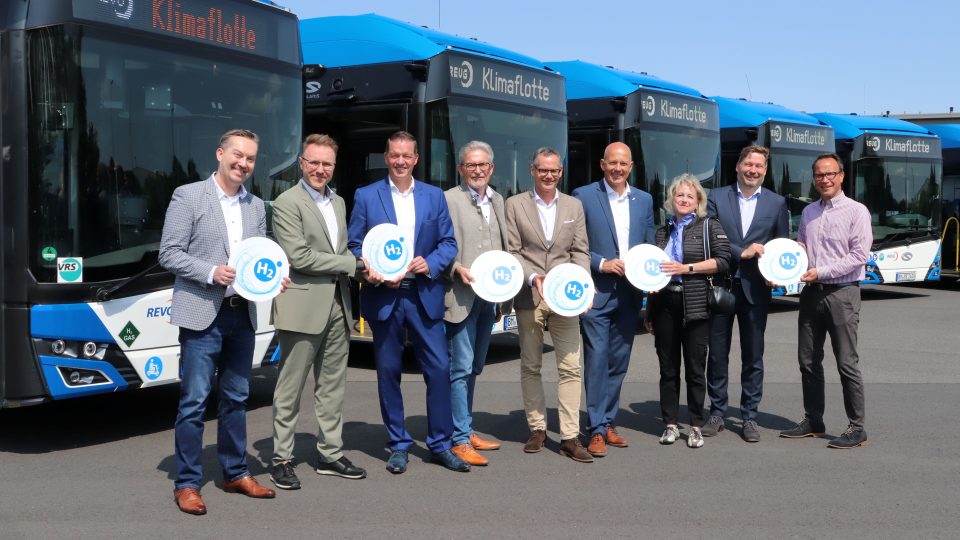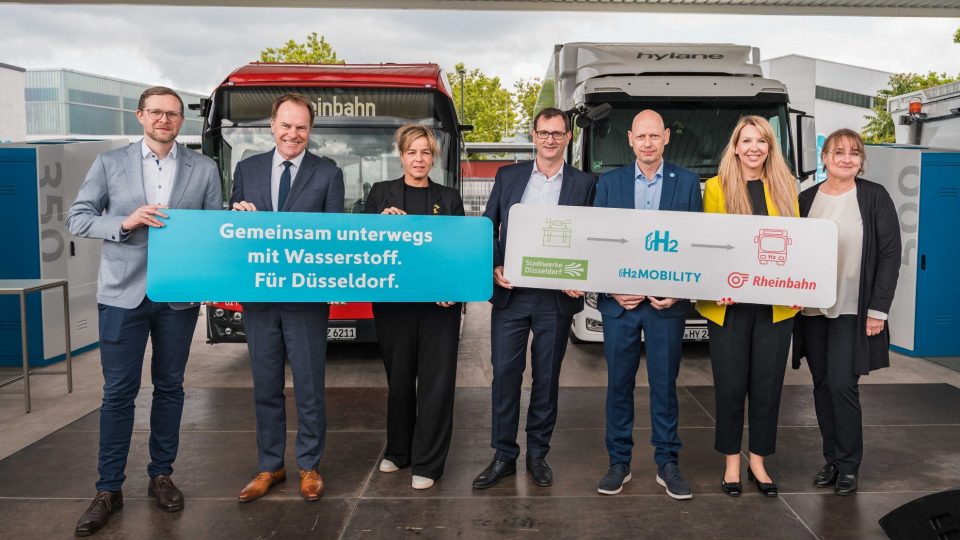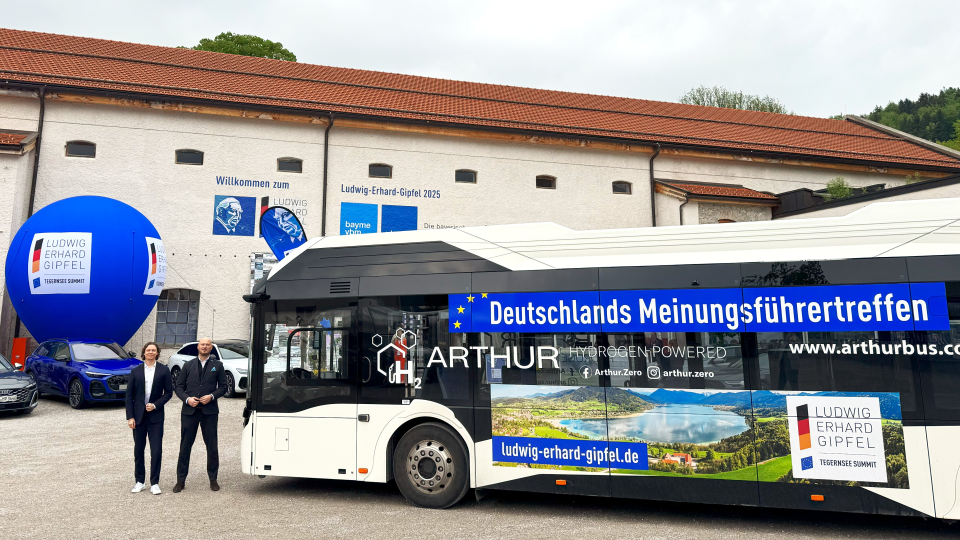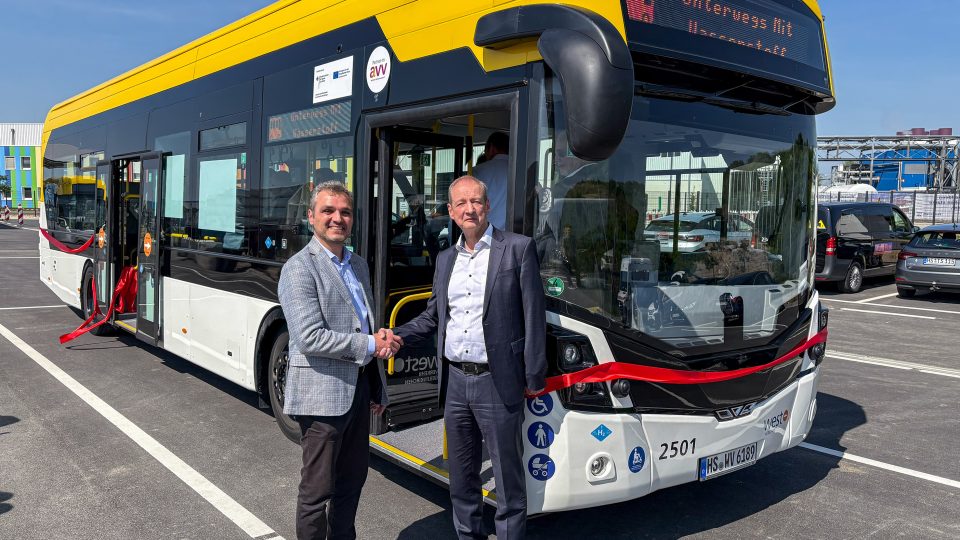Solaris Urbino 12 hydrogen being tested by Dr. Richard Group (Austria)
Dr. Richard Group is the protagonist of a new test round of the hydrogen bus Solaris Urbino 12 in Austria.. After the test held in Vienna in June, the bus was handed over to the Dr. Richard Group, the largest private bus operator in Austria, which presented the vehicle in St. Pölten on 7 July 2020. 57 units are already in Solaris’ order book. The first vehicles will make […]
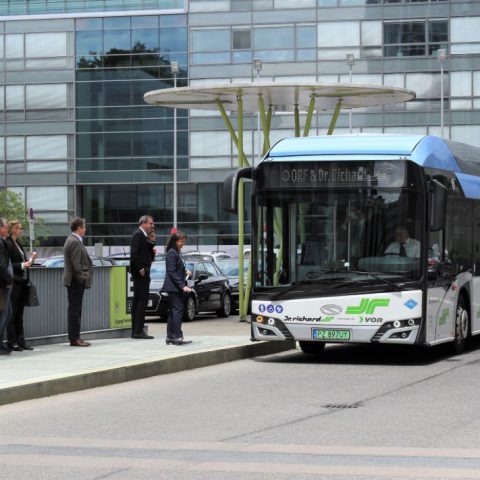
Dr. Richard Group is the protagonist of a new test round of the hydrogen bus Solaris Urbino 12 in Austria.. After the test held in Vienna in June, the bus was handed over to the Dr. Richard Group, the largest private bus operator in Austria, which presented the vehicle in St. Pölten on 7 July 2020.
57 units are already in Solaris’ order book. The first vehicles will make it to Bolzano, Cologne and Wuppertal by the end of this year. A batch of 25 hydrogen buses is bound to the two German cities. SASA Bolzano has been the first operator to secure an order with Solaris for the fuel cell buses, that was unveiled at UITP Summit in Stockholm in June 2019.
Last but not least, Connexxion (Transdev group) will put into service hydrogen buses in the Netherlands, which prides itself to be the most dynamic country in Europe with regards to energy transition in public transport sector. An agreement with Solaris has been secured for the delivery of 20 Urbino hydrogen.
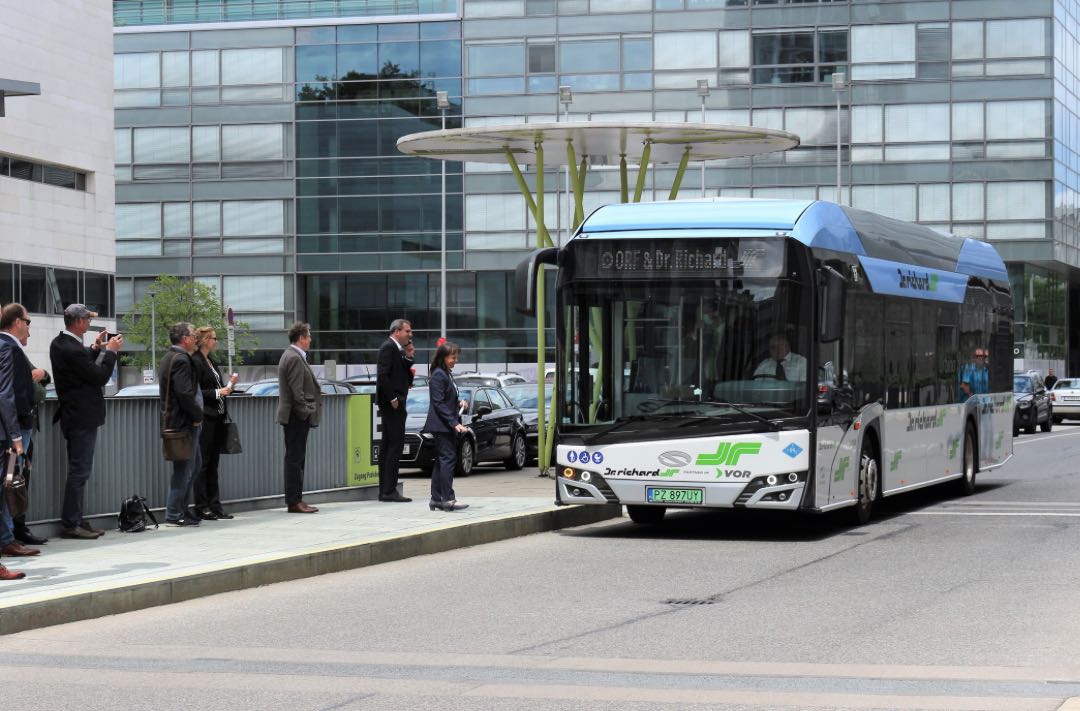
Dr. Richard Group is testing Solaris hydrogen bus
The Dr. Richard Group has begun tests of the Solaris Urbino 12 hydrogen that will be available for passenger rides from 7 to 10 July in Vienna and St. Pölten, Solaris highlights.
The Dr. Richard Group is the biggest family-run carrier in Austria with a fleet of nearly 1,000 buses, including the vehicles made by Solaris. The cooperation of the two firms started back in 2010.
The technologically advanced Solaris Urbino 12 hydrogen buses use a set of fuel cells with a power of 70 kW provided by Ballard Power Systems. The hydrogen is stored in gaseous form in five new-generation tanks mounted on the bus roof. The set of type 4 composite tanks (of the latest generation available on the market), placed longitudinally above the first axle of the vehicle, has a total volume of 1560 litres.
The energy needed to power the bus is produced in the fuel cell that is supplied with hydrogen stored in the roof-mounted tanks. That hydrogen is turned into electricity, which, in turn, is feeding directly the bus driveline which consists of an axle with electric engines. The bus is also fitted with a Solaris High Power battery acting as an additional electric power storage facility. The sole by-products generated during the operation of the Solaris Urbino 12 hydrogen are heat and steam. Consequently, the vehicles do not generate any noxious substances whatsoever.
Dr Richard Group, sustainable mobility in the spotlight
“The Dr. Richard Group has been dealing with emission-free mobility for a few years now. Over the course of numerous tests of battery buses we were able to gain a valuable insight into their practical operation and implementation. Now, for the first time ever, we have a chance to test a hydrogen-powered Solaris bus. The longer the distances to be covered and the heavier the vehicle itself, the more important this type of driveline is becoming, also in terms of resources needed to refuel. The relatively high costs still remain a barrier to a large-scale implementation of this particularly environment-friendly technology, but we look forward to the test which constitutes a significant milestone on our path to green mobility”, said Ludwig Richard, owner and president of the Dr. Richard Group.
“I am very glad that further trial runs of our new hydrogen bus are conducted in Austria. This state-of-the-art technology has already gained wide recognition among clients. Positive changes in public transport and its sustainable development will not succeed without the involvement of such firms as the Dr. Richard Group”, asserts Petros Spinaris, Deputy CEO of Solaris Bus & Coach S.A.



